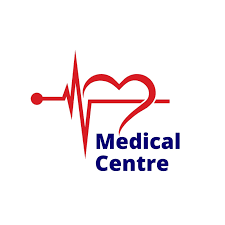Mental Health Awareness: Recognizing and Overcoming Depression
Depression is a common but serious mental health condition that affects millions of people worldwide. Understanding and recognizing the signs of depression is the first step toward getting help and improving mental health.
What is Depression?
Depression is more than just feeling sad or going through a rough patch. It is a persistent condition that affects how a person feels, thinks, and handles daily activities. Symptoms can range from mild to severe and can include:
- Persistent sadness or low mood
- Loss of interest in activities once enjoyed
- Changes in appetite or weight
- Difficulty sleeping or oversleeping
- Fatigue or lack of energy
- Feelings of worthlessness or excessive guilt
- Difficulty concentrating or making decisions
- Thoughts of death or suicide
Causes of Depression
Depression can be caused by a combination of genetic, biological, environmental, and psychological factors. Major life changes, trauma, or stress can trigger a depressive episode, especially in individuals predisposed to the condition.
Recognizing the Signs
It is important to recognize the signs of depression in yourself or others. Early intervention can make a significant difference in managing and overcoming the condition. Some key signs to look out for include:
- Persistent sadness or anxiety
- Loss of interest in hobbies or activities
- Social withdrawal
- Changes in sleep patterns
- Physical symptoms such as aches and pains with no clear cause
Seeking Help
If you or someone you know is experiencing symptoms of depression, it is important to seek help. Here are some steps to consider:
- Talk to a Healthcare Professional: A doctor or mental health specialist can provide a diagnosis and discuss treatment options.
- Counseling or Therapy: Psychotherapy, such as cognitive-behavioral therapy (CBT), can help individuals manage their symptoms and develop coping strategies.
- Medication: Antidepressants can be effective for some people, especially when combined with therapy.
- Support Groups: Connecting with others who are experiencing similar challenges can provide comfort and understanding.
Self-Care and Lifestyle Changes
In addition to professional treatment, self-care and lifestyle changes can play a crucial role in managing depression. Consider the following:
- Regular Exercise: Physical activity can improve mood and reduce symptoms of depression.
- Healthy Diet: Eating a balanced diet can impact overall well-being.
- Sleep Hygiene: Establishing a regular sleep schedule and creating a restful environment can improve sleep quality.
- Mindfulness and Relaxation Techniques: Practices such as meditation and yoga can help reduce stress and improve mental health.
- Stay Connected: Maintaining social connections with family and friends can provide support and reduce feelings of isolation.
Overcoming the Stigma
One of the biggest barriers to seeking help for depression is the stigma associated with mental health issues. It is important to promote a culture of openness and understanding. Encourage conversations about mental health and support those who are struggling.
Conclusion
Depression is a serious but treatable condition. By recognizing the signs, seeking help, and making lifestyle changes, individuals can manage their symptoms and improve their quality of life. Mental health awareness and education are key to overcoming depression and reducing the stigma surrounding it. Remember, you are not alone, and help is available.
